- Home
- Peter F. Hamilton
Misspent Youth (commonwealth saga) Page 6
Misspent Youth (commonwealth saga) Read online
Page 6
9. GENES AND CIRCUSES
THE EUROPEAN COMMISSION’S central briefing arena was a semicircular chamber with seating for more than three hundred people. Like most European government facilities, it was grandiose and expensively furnished. Projection and display equipment was state of the art, capable of providing absolute proof that policies and edicts were working and tax money was well spent. It needed to be; the hardened Brussels political press corps still hadn’t been tamed into the meek complicity that the EMPs and commissioners would prefer.
For once, though, the press corps actually emitted an expectant buzz as they filed into the arena. This afternoon, in the same place, they would be covering the launch of an initiative to tackle small town transport infrastructure decay in the Group3 northeastern countries. Tomorrow there would be two presentations, one on offshore energy subsidies, and yet another on agriculture. Yesterday Brussels had been dominated by the auditors refusing to sign off on the commission accounts for the fifteenth year in a row. But this was different; this was a human story, this was the official discovery of the fountain of youth.
A long table had been set up on the raised stage, complete with the traditional glasses of water and silver microphones. Behind it, a huge screen was displaying a colorful double helix that writhed and twisted like a tormented serpent. The senior press officer looked across the audience of familiar cynical faces, took a deep breath to calm his fluttering nerves, and announced that they were ready to begin. President Jean Brèque walked onto the stage first. The press corps politely rose. Rob Lacey, the British prime minister, was next, producing his standardized lopsided smile for the newspool feed cameras.
Jeff Baker appeared. The arena was silent for a moment, then the press broke into thunderous applause. Jeff was slightly taken aback by the response, but recovered to give a quick wave before sitting down. His family followed him in. Sue, of course, looked beautiful, dressed stylishly in a ginger-pink silk suit with a high collar. Cameras zoomed in eagerly. Tim didn’t quite slouch, but he did give the theater a sullen glance. He was wearing a vivid higlo Union Jack T-shirt. The English reporters chuckled at that. Standing next to his father, it was as though they were brothers with barely a couple of years separating them. A lot of reporters commented on how similar they looked. With Sue in the group, appearing at most five years older than Jeff, it was hardly a standard family picture.
President Brèque leaned forward to the microphone, smiling broadly. “Good morning, ladies and gentlemen, and welcome to what I consider one of the most momentous conferences of my tenure. As you can see, Jeff Baker is alive, well, and looking in very good shape. Very young shape, I should say.”
The press applauded again. Jeff gave them a thumbs-up.
“There have been many critics of our rejuvenation project,” the president continued. “Both inside our community, and especially abroad. Today, I consider our persistence to be utterly vindicated. Dr. Sperber, who heads the project, tells me that Dr. Baker has an effective physiological age of a youth in his early twenties. We have been extraordinarily successful. As a result, only Europe is in a position to provide this treatment for its citizens. America, with its increasingly isolationist foreign policy and Religious Right cultural dominance, is a long way behind us in this field. Our unquestioned leadership in this field can only be seen as an endorsement of our social inclusiveness. Ours is the culture in which the promotion of human life can flourish to its full potential.” He inclined his head graciously. “But enough of my dull old speechifying. It is my pleasure and privilege to introduce Jeff Baker, father of the datasphere.”
Jeff grinned round, mildly embarrassed, but unable to hide his sense of wonder. In twenty-four hours he’d managed to walk in a reasonable fashion, though his muscles were still woefully weak. But getting used to what he looked like—what he was now—that was difficult verging on impossible. He was beginning to think the human brain was fundamentally incapable of understanding the transformation.
“Dr. Baker, congratulations on your successful treatment, and welcome back,” the Berlin Stream news stream reporter said.
“Thanks.” Jeff knew these were going to be desperately dull and sanitized questions. He’d even been shown them in advance so he could prepare answers; Lucy Duke had sat with him that morning, making suggestions. It didn’t particularly bother him; the kind of tough interrogation the old newspaper reporters back home and thirty years ago used to dish out was a hell of an ordeal. He wouldn’t be able to face that kind of session right now.
“I know this will sound somewhat trite,” the Berlin Stream man went on, “but could you please tell us how you feel?”
“Easy enough: I feel as if I’ve been caught up by a miracle. Even when I was going into the suspension womb there was some little part of me that refused to believe this would work. I’m rather glad to be proved wrong. But trust me, it takes some getting used to. And on a personal note, I’d just like to express my public appreciation to Dr. Sperber and his team at the university for both their dedication and professionalism.”
“Dr. Baker, what will you do first now that your treatment is complete?” the woman from Monde asked.
“I’m going to take things easy for a while, build my strength back up—just like the doctors tell me to. I might have new muscles, but they’re not used to doing any work right now. Same with my stomach, unfortunately. Before I went into the treatment I made a long list of fabulous meals I was going to eat when I came out. That’ll have to wait a few days as well now; I’m on simple stuff to start with, nursery food basically. But most of all I’m just looking forward to being home with my family.” He put one arm around Tim’s shoulder, and smiled warmly at Sue. She replied with a fond look. “This has left me pretty disoriented. I just need to get my feet back on solid ground.”
“Sue, can you tell us how you feel about having your husband back like this?”
“It’s hard to describe, really. Like every dream I’ve ever had coming true all at once. Now, I just want him home where he belongs, and we can have our life back.”
“How about you, Tim?”
“It’s good.”
Jeff laughed lightly. “That’s it?” he joshed.
“Well…” Tim glanced suspiciously around the theater. “He’s my dad, you know. ’Course I want him back. I really missed him badly. And this…I just…He looks pretty amazing, that’s all. It’s going to be great.”
This time Jeff gave him a strong hug. Tim turned bright red and managed a limp smile for his father.
“Dr. Baker, we’re all very impressed with your physical appearance,” the Line Telegraph reporter asked. “But it has cost an awful lot of money to give one person something the majority will never have. Do you really think it’s justified?”
Jeff kept smiling; he didn’t remember this question being on the list. From the corner of his eye, he caught Lucy Duke frowning. “You’re asking the wrong person for an objective opinion, I’m afraid.”
“But rejuvenation is never going to be available to everybody, is it? Don’t you think this project is raising false hope?”
The president leaned forward, giving the reporter an angry glare. “Absolutely not.”
“If I could answer this,” Jeff said. “The most obvious parallel is penicillin. When it was first developed at the start of World War II, there was so little of it that the doctors wouldn’t have been able to treat both Churchill and Roosevelt had they needed it. Today there’s so much penicillin and antibiotics that super-bug resistance is a real problem for the doctors. Of course, my treatment cost a lot. I’m the first, there is no production line. And I don’t suppose it will ever be easy, or get to the point where it’s refined down to a simple pill. But thanks to today’s pioneers across Europe and the support we give them, it will gradually become more available and cheaper. And I haven’t even mentioned the hundreds of spin-off techniques that are benefiting the biogenetics industries. All in all, I’m afraid you asked a bit of a point
less question. People have a right to hope, and this project is certainly justified in giving them that hope.”
There was some scattered applause, led by the president and prime minister.
“Have you met Dr. Schrober?” the Polish Star asked.
“No,” Jeff said. He was struggling to recall his quick briefing with Lucy Duke. Dr. Katerina Schrober was the next rejuvenation subject. She was some kind of molecular biologist, a Nobel laureate. He tried not to smirk at how obligatory the choice was: female and German. So politically correct it was almost parody. “But I certainly wish her well. I hope her treatment goes as smoothly as mine.”
The Lisbon Web reporter asked: “How is your mental state, Dr. Baker? Do you believe you are up to the job you were given this rejuvenation for?”
“Good question,” Jeff said earnestly. “I’ll be undergoing memory assessment for the next few days. I can certainly remember most of my life, as much as any seventy-eight-year-old can. There will be sections missing, that’s inevitable. It’s also essential, because I now have another half century of life to fill those new neurons with. I need the room! As to my intellect and rationality, that seems to be working, although I’ll also be undergoing evaluation tests to map my cognitive processes. Once I’ve settled back in with my family, I’m convinced I’ll be able to do the job. Just don’t ask me specifics on superconductivity at the moment. I’ll need to bring myself up to speed on current research.”
“So you think we should soon have high-temperature superconductors?”
“I think it’s a little unfair to ask Dr. Baker about deadlines,” Rob Lacey said. “We all know he was chosen for this because of his unrivaled knowledge and expertise in solid state physics. The research effort to produce a room-temperature superconductor will be pan-European, much the same as rejuvenation.”
“That’s right,” Jeff said. “It won’t be one person that brings about a commercial superconductor; this is about mounting a team effort. I’m not even the team leader. I’ll be one of a thousand people contributing.”
“A contribution we shall all value, Dr. Baker,” the president interjected. “A room-temperature superconductor will be of enormous advantage to every European, indeed everyone on this planet. And its effects will be felt immediately. Ecologically and economically each one of us will benefit. Less power will be lost through transmission cables; it will be possible to build more efficient generators and motors.”
“The world needs new energy and new ways of handling that most precious resource,” Jeff said. “And this is the most promising method of all.”
“High-temperature superconductors have been a goal of the physics community for over fifty years, Dr. Baker,” the New European Scientist reporter said. “Don’t you think that if it was possible, we’d have it by now?”
“Practical rejuvenation has been a goal ever since we discovered the DNA molecule. It took us this long to get it right. And there’s a lot of time, effort, and money being channeled into the problem right across the world, not just in Europe. America was doing some superb work on nanonics before I went into treatment. I’m very keen to see where that’s leading, and how much is applicable to our own effort.”
“I don’t know about anyone else,” Rob Lacey said cheerfully. “But I’m confident that having Jeff here on our team will give us in Europe a hell of an advantage. And as prime minister I’m proud that it is one of our citizens, a man whose fame is based on his notorious generosity, who will be providing our premier technological project the impetus it needs for success. We are at the core of Europe, and I hope we can now become its powerhouse.” He looked round contentedly at the reporters, searching out their approval, while somehow managing to avoid the eye of the president, whose tight smile was frozen on his face.
10. IN HOUSE PARTY
THE AVTXT WAS CLEVER, with green devil icons performing a mildly obscene cheerleader act, spelling out the words to the invitation. Annabelle had laughed when she received it, sending back a swarm of saucy angels to chant an RSVP. It wasn’t quite what she would have chosen to go to, a cocktail party to welcome Jeff Baker home. But Tim had been sure to invite several of their friends, so she wouldn’t feel left out. As usual, she thought. Tim was always very careful in his approach, always making sure that everything they went to was a just-good-friends outing. So careful, in fact, she wouldn’t even say they qualified as a couple yet. A small part of her was quite irked by that. How obvious did she have to be?
She had to admit, though, the party wasn’t as awful as she had expected. It was ninety percent adults, and most of them over fifty. But the manor’s large reception rooms were wonderfully elegant, and Sue Baker had hired a very upmarket catering team for the event. Waiters and waitresses circled with glasses of champagne on silver trays, and mounds of delectable canapés. The men were mostly in suits, while the women wore expensive dresses. Shame so many of them lacked any sort of elementary fashion sense, Annabelle thought.
She’d given a lot of consideration to what she ought to be wearing herself. In an ideal world she’d be wearing something from Stephanie Romane’s designer line, but she didn’t have that kind of money. Instead she’d spent an age trawling through sites that offered reproductions of varying quality, finally settling for a simple orange summer dress with quite a short skirt that was indistinguishable from the real thing. It earned her a lot of looks from the men, of all ages.
Annabelle had arrived quite early on in the evening, calmly tolerating Tim’s puppyish enthusiasm. His eyes kept switching between her legs and her chest, with a rest between so he could blush, hoping she didn’t notice. At least that aspect of their relationship was predictable. Boys always acted as if they’d had a lobotomy around her. He’d introduced her to his aunt Alison, who clearly didn’t give a damn about appearance judging by the dress she wore, and was actually a lot of fun. Annabelle chatted with her for a while before the other girls arrived. After that Tim got dragged away by his mother, so she stayed with Rachel, Lorraine, and Danielle; the three of them clustered in a corner, warding off wishful glances from the older men.
“Colin’s asked me to the ball,” Danielle gushed. She couldn’t keep the smile off her face. “God, I’m just so much relieved somebody has. Finally! I was worried I’d have to go with Philip.”
“I thought Colin was going with Vanessa,” Rachel said.
“No. Me!”
“Does Vanessa know?” Lorraine murmured.
Annabelle took a sip of her Bacardi and lime to cover the fact she couldn’t summon up any zeal for Danielle’s success. Tim still hadn’t asked her. There was such a thing as playing it too cool, as he was about to find out if he didn’t ask pretty damn soon. She listened to Danielle bubbling on about what she was going to wear.
“I’ve heard Martin and Sophie are going together,” Lorraine said.
“Heavens, you have got to be joking,” Rachel said.
The girls all giggled. Annabelle managed a weak smile; Sophie was a good friend; she didn’t feel quite right joining in with the innuendo.
“By the way, hope you don’t mind,” Rachel said slyly. “But Simon’s asked me to go.”
“Why should I mind?” Annabelle asked. “We finished weeks ago.” That vibrant party had been so different from this one. At the end of the night she and Simon had wound up in an upstairs bedroom with Derek and Louise. They turned the lights down low, and Derek handed around an intube. He’d been passing the stuff around liberally all evening, which is why they’d all had such a wild raucous ride through the party. When it was her turn Annabelle took a dose just as hefty as the others. Then Derek suggested a game of strip Chinese sticks.
It was a deliciously wicked way to end the evening. Every time she tried to remove another stick, it would send the rest clattering down. When that happened, both brothers watched with silent lecherous grins as she removed another piece of clothing. She was the one they admired and desired, the center of attention. It made her indecently hot. And the
sticks kept on tumbling down.
Simon never complained. The game swept him on as fiercely as it did her. It was afterward when it all fell apart between them. Now she tried to think of something to say that would imply strength of character in finishing with him. “If you want him, have him.” A line she was sure she’d heard on a pre10 movie.
“Oh, I will.”
“Always keep them dangling,” Danielle warned.
“I’ll do more than that to him.”
“What are you going to wear?” Lorraine asked.
“Oh, I got my dress weeks ago,” Rachel said. “Haven’t you seen it?”
“No!”
Must be the only one, Annabelle thought sharply. There were bluesoaps that had fewer viewers than that dress.
“It’s purple satin. Classic strapless from Demoné. With so much gorgeous lace edging. That’s antique, you know. Daddy had a fit when he found out how much it was, but I had to have it. It’s just me.”
“Wow,” Lorraine breathed.
“I’ve seen it,” Danielle said brightly. “It’s lovely.”
“Thank you,” Rachel said. “What about you, Annabelle? Have you bought a dress yet?”
Annabelle finished her Bacardi in a single long swallow. The evening gowns on Stephanie’s site cost an absolute fortune, and she hadn’t found any reproductions that were any good, not in her price range. She knew she’d wind up hiring one for the night. “I haven’t decided what I’m wearing,” she told them, even though they were being evil. Rachel knew damn well she hadn’t got anyone to go with. That one and Simon were going to be well suited, she decided. “I’m going to get another drink.” She walked away, her empty glass held casually low, as if she hadn’t a care in the world.
God damn Tim for not asking her yet!
IT MUST BE A SIGN of true age to think parties were a pain to be avoided at all costs. Long before this one started, Jeff had decided there was no way he was going to spend more than an hour pasting on a false smile and saying: “Really, how interesting,” to people he didn’t like, didn’t know, and considered utterly boring. And this was a party in his honor. Age, or grumpiness? he wondered.

 A Night Without Stars
A Night Without Stars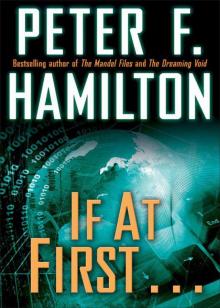 If at First . . .
If at First . . .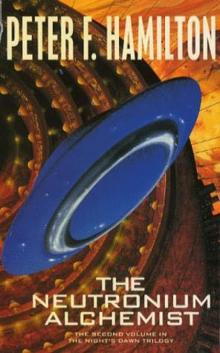 The Neutronium Alchemist
The Neutronium Alchemist Great North Road
Great North Road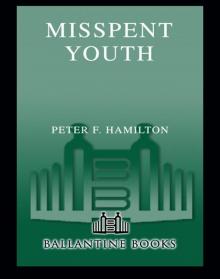 Misspent Youth
Misspent Youth Pandora's Star
Pandora's Star The Evolutionary Void
The Evolutionary Void The Dreaming Void
The Dreaming Void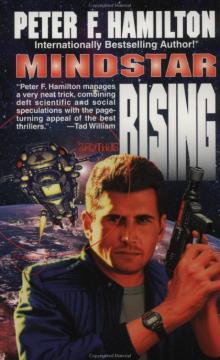 Mindstar Rising
Mindstar Rising The Temporal Void
The Temporal Void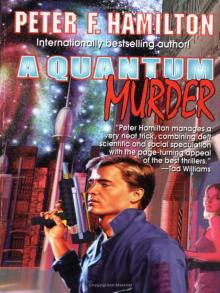 A Quantum Murder
A Quantum Murder The Hunting of the Princes
The Hunting of the Princes Salvation Lost
Salvation Lost The Dreaming
The Dreaming Salvation
Salvation Light Chaser
Light Chaser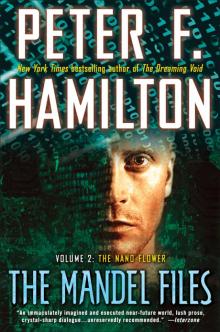 The Mandel Files, Volume 2: The Nano Flower
The Mandel Files, Volume 2: The Nano Flower![The Saints of Salvation [British Ed.] Read online](http://i1.bookreadfree.com/22/the_saints_of_salvation_british_ed__preview.jpg) The Saints of Salvation [British Ed.]
The Saints of Salvation [British Ed.] Manhattan in Reverse
Manhattan in Reverse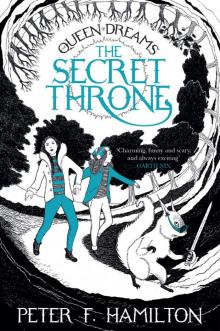 The Secret Throne
The Secret Throne A Window Into Time
A Window Into Time A Second Chance at Eden
A Second Chance at Eden The Nano Flower
The Nano Flower The Confederation Handbook
The Confederation Handbook The Naked God
The Naked God The Saints of Salvation
The Saints of Salvation The Void Trilogy 3-Book Bundle
The Void Trilogy 3-Book Bundle The Abyss Beyond Dreams
The Abyss Beyond Dreams A Voyage Through Air
A Voyage Through Air Judas Unchained
Judas Unchained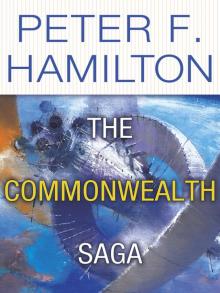 The Commonwealth Saga 2-Book Bundle
The Commonwealth Saga 2-Book Bundle The Naked God - Flight nd-5
The Naked God - Flight nd-5 Night Without Stars (Chronicle of the Fallers Book 2)
Night Without Stars (Chronicle of the Fallers Book 2)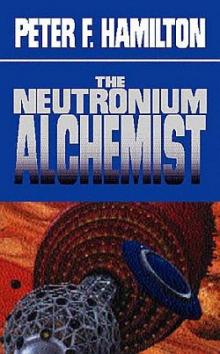 Neutronium Alchemist - Conflict nd-4
Neutronium Alchemist - Conflict nd-4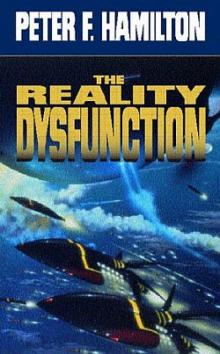 Reality Dysfunction - Expansion nd-2
Reality Dysfunction - Expansion nd-2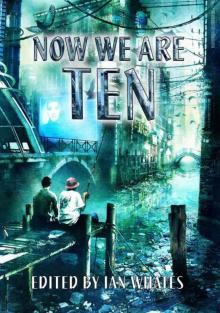 Now We Are Ten: Celebrating the First Ten Years of NewCon Press
Now We Are Ten: Celebrating the First Ten Years of NewCon Press Neutronium Alchemist - Consolidation nd-3
Neutronium Alchemist - Consolidation nd-3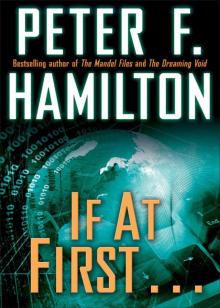 If at First . . . (Short Story)
If at First . . . (Short Story) A Second Chance at Eden nd-7
A Second Chance at Eden nd-7 Judas Unchained cs-2
Judas Unchained cs-2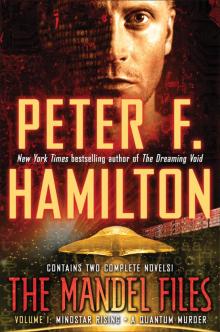 The Mandel Files, Volume 1
The Mandel Files, Volume 1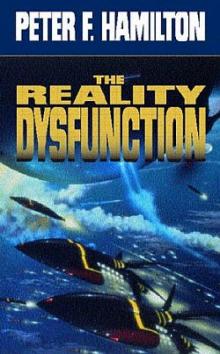 Reality Dysfunction — Emergence nd-1
Reality Dysfunction — Emergence nd-1 The Temporal Void (ARC)
The Temporal Void (ARC) The Mandel Files
The Mandel Files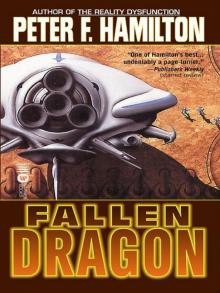 Fallen Fragon
Fallen Fragon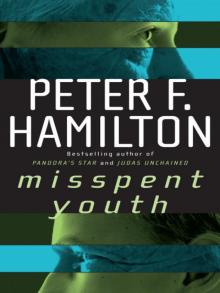 Misspent Youth (commonwealth saga)
Misspent Youth (commonwealth saga)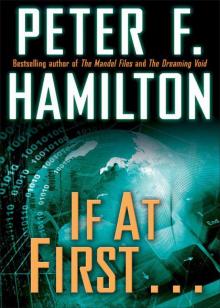 If at First...
If at First... Best of British Science Fiction 2016
Best of British Science Fiction 2016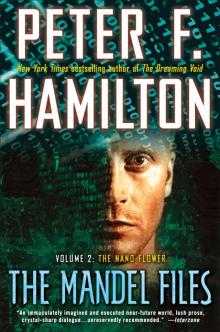 The Mandel Files, Volume 2
The Mandel Files, Volume 2 The Naked God - Faith nd-6
The Naked God - Faith nd-6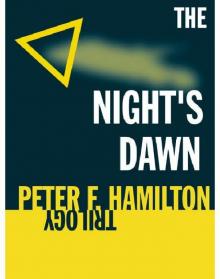 The Night's Dawn Trilogy
The Night's Dawn Trilogy Pandora's Star cs-2
Pandora's Star cs-2 A Window into Time (Novella)
A Window into Time (Novella)